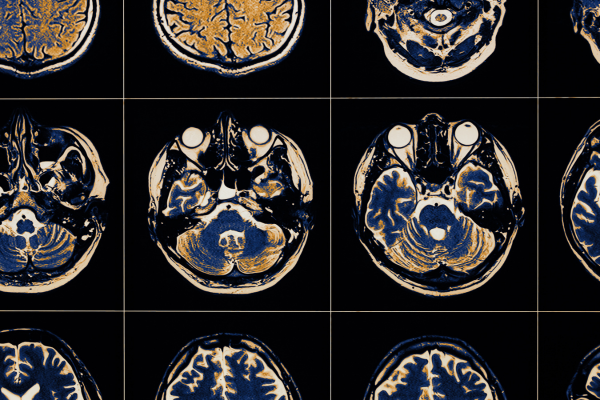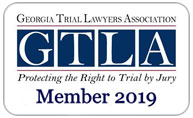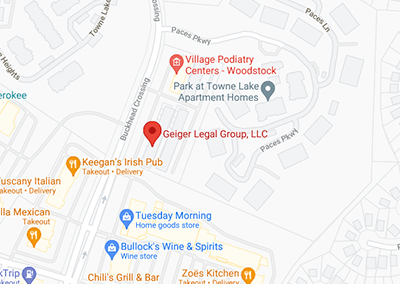Types of Brain Injuries

Brain injuries are among the most devastating consequences of accidents. People who suffer a traumatic or non-traumatic brain injury often face lifelong physical, emotional, and cognitive challenges. When these injuries occur due to another party’s negligence or deliberate behavior, the injured party has a right to seek compensation for their losses. Understanding the different types of brain injuries and brain stem injury symptoms can help you know what compensation you may be eligible to pursue.
The experienced brain injury attorneys at Geiger Legal Group, LLC, understand how challenging life can be after a severe accident. Our traumatic brain injury lawyers will fight to maximize your compensation so you can have the necessary resources to move on with your life. Contact our firm today for a free consultation to learn more about how our traumatic brain injury attorneys can help you.
What Constitutes a Brain Injury?
Brain injuries can range in severity from mild to severe. Mild traumatic brain injuries (TBIs), such as concussions, may temporarily disrupt brain function. Moderate TBIs can lead to more significant impairment for hours, days, or weeks after the injury. Severe TBIs often result in long-term or permanent disabilities due to extensive damage to brain tissues.
Concussions
Among all types of traumatic brain injuries, concussions are the most common. They are often the result of blunt force trauma when an object strikes the head. Alternatively, they can be caused by closed head injuries, when a forceful shaking causes the brain to hit the inside of the skull. Either type of concussion can damage brain tissues and blood vessels.
While concussions are also called “mild TBIs,” the symptoms can become severe. These include:
- Headaches or migraines
- Dizziness
- Slurred speech
- Confusion
- Memory loss
- Nausea or vomiting
- Blurred vision
- Ringing in the ears
- Mood changes or swings
- Difficulty concentrating or focusing
- Sleep disturbances
Contusions
Also known as an intracerebral hematoma, a contusion is a bruise of the brain. This type of injury causes bleeding and swelling within the brain and around the area of the head where the trauma occurs. They can happen when the force of an external object causes a skull fracture or when the blood clots for other reasons. Contusions can also result from medications that cause blood thinning, which can be grounds for a medical malpractice case if the prescription is unwarranted.
Coup-Contrecoup Injuries
Coup-contrecoup is a French term meaning “blow-counterblow.” These injuries have this name because they involve harm to both the side of the brain where the trauma occurs and the opposite side where the brain hits the inside of the skull. Because it involves multiple parts of the brain, a coup-contrecoup brain injury is among the most severe and consequential TBIs. Symptoms include:
- Paralysis on one or both sides of the body
- Impaired coordination
- Loss of sensation
- Aphasia or inability to understand/produce speech
- Memory loss
- Emotional volatility
- Personality changes
- Seizures
Diffuse Axonal Injuries
Diffuse axonal injuries damage the axons of brain cells, rendering them incapable of functioning. While this type of injury does not cause bleeding within the brain, it can cause significant swelling. The result can be loss of brain functions, with symptoms including:
- Loss of consciousness
- Coma
- Personality changes
- Inability to focus or concentrate
- Memory loss
- Slurred speech
- Paralysis
Penetrating Injuries
As the name suggests, penetrating injuries occur when something pierces into the brain tissues. This may be a foreign object, such as a shard of glass or shrapnel from a car accident. Alternatively, the penetration may come from a broken piece of the skull after a blunt force trauma. Because penetration injuries can lead to the loss of significant amounts of blood, swift medical attention is necessary to avoid loss of life.
Survivors must often undergo extensive surgery to minimize long-term consequences. Depending on the area of the penetration, injured individuals may face lifelong challenges with movement, coordination, speech, cognition, and emotion regulation.
Recovering From a Brain Injury
Recovering from a traumatic brain injury is a long process that can take years. Some studies show that the first 72 hours after brain injury indicate a patient’s prognosis. While every brain injury is unique, most survivors go through similar stages of healing and rehabilitation. Understanding the phases of TBI recovery can help patients and families know what to expect.
The Rancho Los Amigos Scale (RLAS) describes 10 stages of brain injury recovery that medical professionals often see after a brain injury. Some injury victims progress through the levels, while others will reach a level and remain there. The stages are as follows:
- Stages I to III – The patient may be in a coma and unresponsive to stimuli. If they progress to inconsistently responding to external stimuli, they likely will be unable to feed themselves and require a caregiver to perform basic needs.
- Stages IV to VI – The patient may be agitated and confused, and even as they become more agreeable, they may experience memory loss and exhibit poor judgment. Difficulties with movement, balance, coordination, swallowing, vision, and self-care may persist.
- Stages VII to X – The patient’s memory problems may improve, but they might remain frustrated and irritable. However, they may resume participating in work, school, or leisure activities. Nevertheless, they are at continued risk of developing depression.
Recovering from a TBI requires extensive rehabilitation with a team of medical professionals. Support from family and friends is also critical. Many survivors can regain functioning and live fulfilling lives with time, therapy, and determination.
Contact Geiger Legal Group, LLC, Today
If you suffered a brain injury due to another party’s negligence, you may be eligible for significant compensation for your injury-related losses. The experienced traumatic brain injury lawyers at Geiger Legal Group, LLC, are passionate about protecting the rights of injury victims across Georgia. With millions of dollars recovered on behalf of our clients, we are an experienced brain injury law firm with a record of success. Contact us today for a free consultation with a brain and spine injury attorney, and let us fight for you.



































